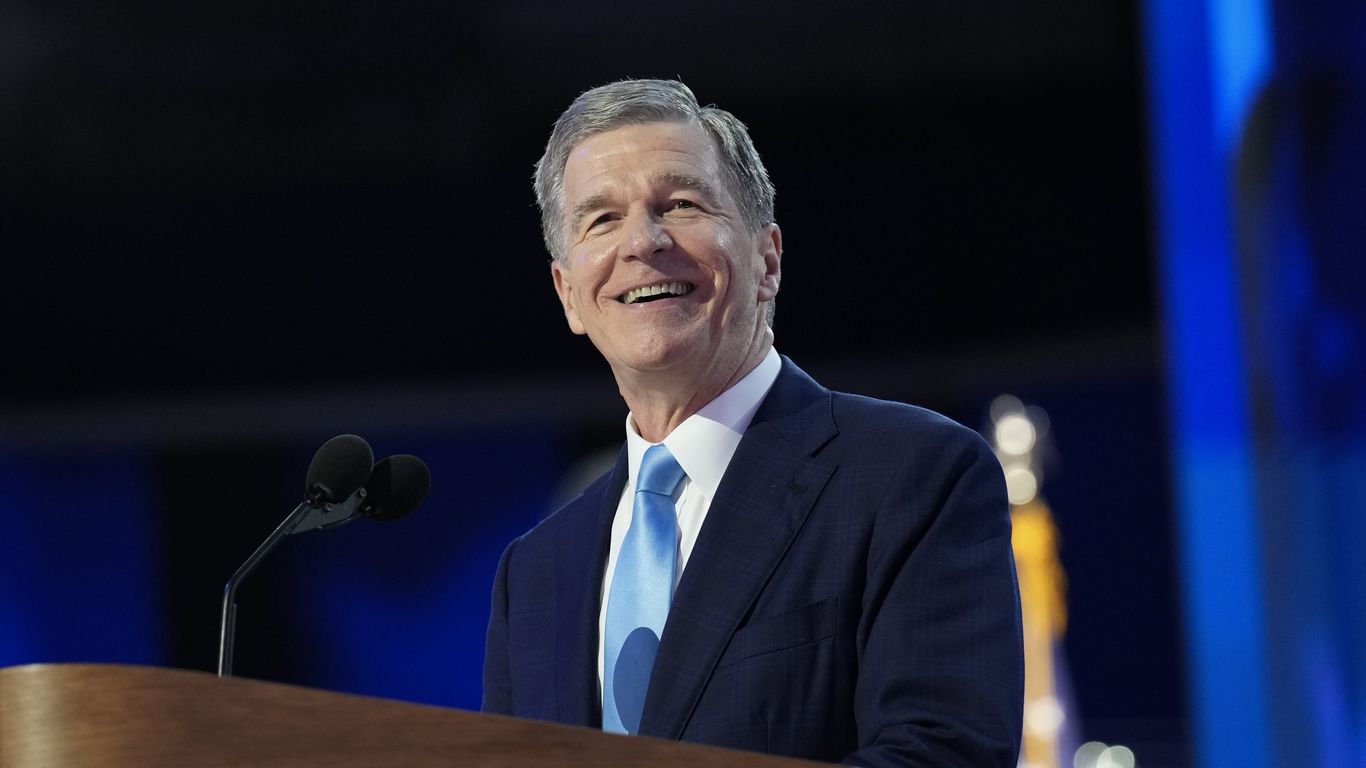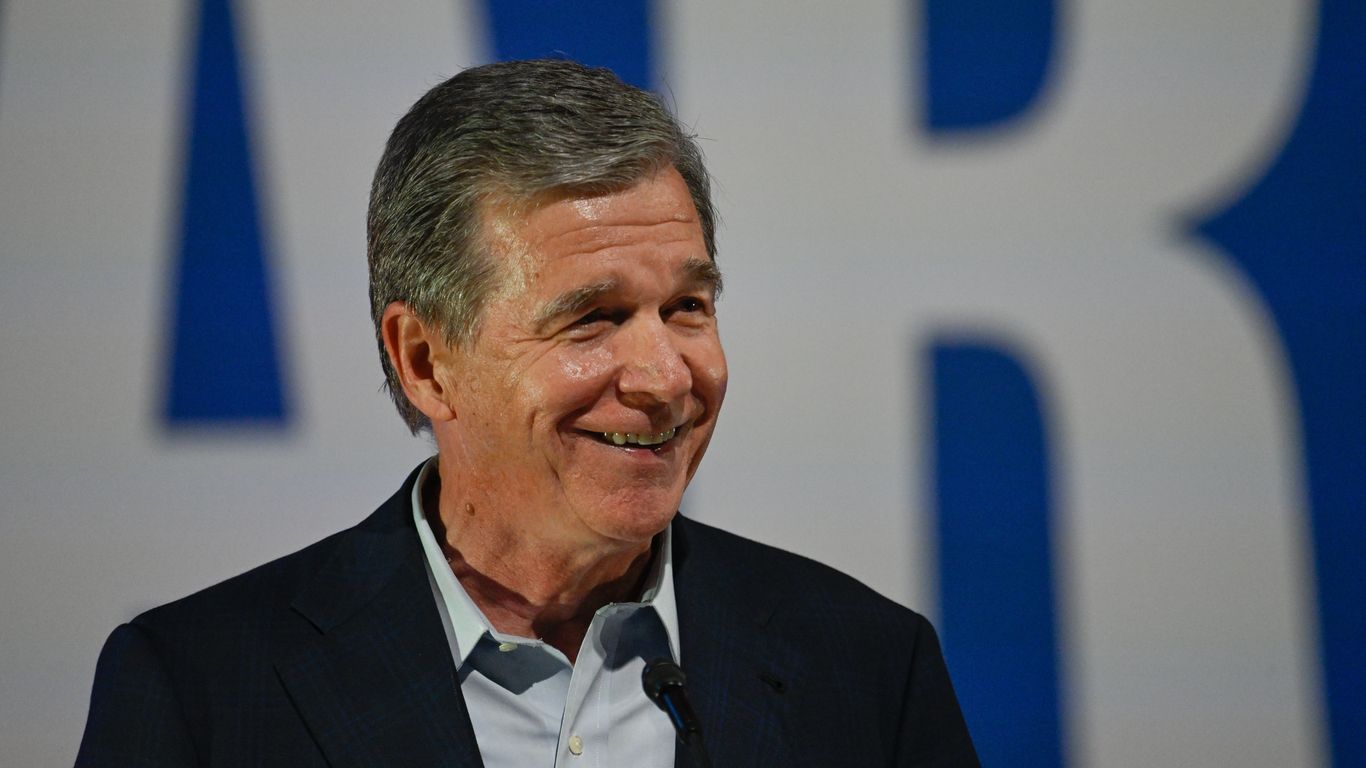Governor Cooper's Potential Senate Run: What it Means for the Democratic Party

Introduction
Sources have revealed that North Carolina Governor Roy Cooper is planning to enter the 2026 Senate race, expected to make an official announcement next week. The Democratic Party has been eagerly awaiting Cooper's decision, as he is considered their top recruit for the Senate race. Cooper's potential run has been widely discussed among political circles, with many speculating on the impact it could have on the race.
Background and Significance
Cooper's potential candidacy comes at a crucial time for the Democratic Party, as they aim to regain control of the Senate in 2026. With a competitive race expected in North Carolina, the party sees Cooper as a strong contender with a proven track record of winning statewide races. As governor, Cooper has been a strong advocate for progressive policies, including expanding Medicaid and investing in education. If he enters the race, it could potentially shift the dynamic of the race and energize Democratic voters.
Potential Challenges and Implications
While Cooper's potential run is exciting for Democrats, it also brings potential challenges. If he decides to run for Senate, it would leave an open seat for the governor's race in North Carolina, which could potentially be filled by a Republican. Additionally, the competitive race could also lead to increased spending and negative campaigning. However, if Cooper is successful in winning the Senate seat, it could have a significant impact on
About the People Mentioned
Roy Cooper
Roy Cooper is the 75th Governor of North Carolina, serving since January 2017. Born and raised in Nash County, North Carolina, he attended public schools and worked on his family farm before earning undergraduate and law degrees from the University of North Carolina at Chapel Hill. Cooper practiced law in Rocky Mount, NC, for 18 years. His mother was a public school teacher, which influenced his strong commitment to education[1][2]. Cooper began his public service career in the North Carolina House of Representatives in 1986 and later served in the State Senate, where he became the Democratic Majority Leader in 1997. During his legislative tenure, he advocated for increased teacher pay, reduced class sizes, and authored North Carolina’s first children’s health insurance initiative. Notably, as Senate Majority Leader, he led the passage of the pioneering 1999 North Carolina Predatory Lending Law, aimed at protecting homeowners from unaffordable loans[1][2][4]. In 2000, Cooper was elected Attorney General of North Carolina, a position he held for four terms until 2017. As Attorney General, he focused on family protection, crime reduction, consumer advocacy including fighting predatory lenders, and lowering utility rates[1][4]. As governor, Cooper has prioritized public education, economic development, rural revitalization, health care access, and disaster recovery after hurricanes. He successfully championed Medicaid expansion in North Carolina, which is considered a major policy achievement. Cooper also oversaw bipartisan efforts on energy policy, including legislation to reduce carbon emissions by 70% by 2030 and achieve carbon neutrality by 2050. He has appointed the most diverse cabinet in state history and worked to ensure government reflects the state’s demographics[1][7]. Cooper’s leadership has been marked by working with a legislature often controlled by the opposition party, navigating political challenges to advance his agenda focused on improving the welfare and prosperity of North Carolinians[7].
About the Organizations Mentioned
Democratic Party
## Overview of the Democratic Party The Democratic Party is the oldest continuing political party in the United States, with its roots tracing back to 1792 as the Democratic-Republican Party. Founded by Thomas Jefferson and James Madison, it initially advocated for a decentralized government and states' rights, opposing a strong central authority[1][2]. Over time, the party evolved, becoming more progressive and supportive of federal government intervention in social and economic affairs. ## History The modern Democratic Party was formally established in 1828, with Andrew Jackson's presidential campaign marking a significant turning point. Jackson's successful campaign expanded voting rights to all white men, regardless of land ownership, and further reduced federal power[3][6]. The party became deeply divided during the Civil War era, with Northern Democrats supporting limited slavery expansion and Southern Democrats advocating for its perpetuation[3][5]. Post-Civil War, the party became a stronghold for Southern whites who opposed Reconstruction[3]. ## Key Achievements The Democratic Party has played a pivotal role in shaping U.S. history: - **Civil Rights**: The party supported key civil rights legislation, including the Voting Rights Act and the Civil Rights Act of 1964. - **Social Programs**: Democrats have been instrumental in establishing and expanding social programs like Social Security, Medicare, and Medicaid. - **Economic Policies**: The party has often championed progressive economic policies, including labor rights and environmental protection. ## Current Status Today, the Democratic Party is a major force in U.S. politics, advocating for a strong federal government role in addressing social and economic issues. It emphasizes progressive policies on healthcare, climate change, and economic inequality[6]. ## Notable Aspects - **Symbolism**: The party's symbol, the donkey, originated from Andrew Jackson's opponents calling him a "jackass," which his supporters adopted as a mascot[6]. - **Diversity**: The party has become increasingly diverse, representing a wide range of socio-economic and













